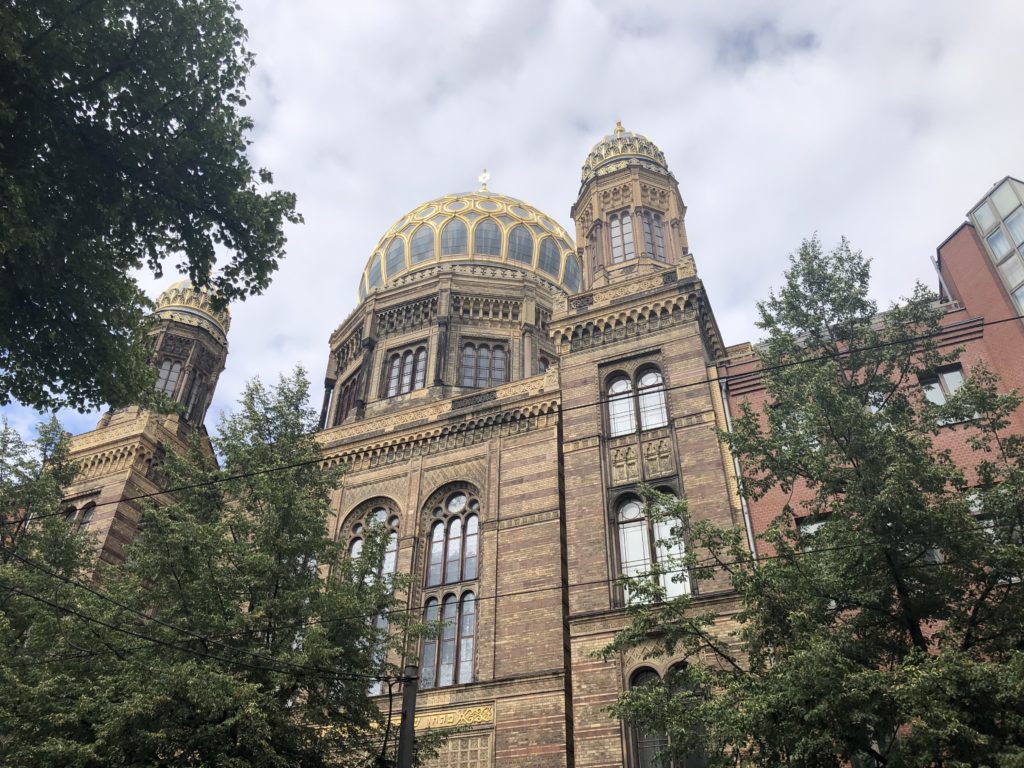Michelle McCarthy,
M.S.L.I.S., Reference Services Assistant, Center for Jewish History
On
Wednesday, March 11th, the 64th Annual Jewish Book Awards
for 2014 were held at the Center for Jewish History. The awards are distributed
each year in 15 categories by the Jewish Book Council to promote the “reading,
writing, and publishing of modern Jewish content in American literature.” These
categories encompass a strong variety of subjects, including modern Jewish
thought and experience, women’s studies, biography, Sephardic studies, and
young adult literature. More information
on the Jewish Book Council can be found here.
As
a major resource center for documentary history, the Center for Jewish History
and collections from its five partners, the American Jewish Historical Society,
the American Sephardi Federation, Leo Baeck Institute, YIVO Institute for
Jewish Research, and the Yeshiva University Museum, have played an integral
part in supporting the collective memory presented in many of the celebrated
genres:
Kathryn
Hellerstein was awarded the Barbara Dobkin Award for Women’s Studies for her
work, A Question of Tradition: Women Poets in
Yiddish, 1586-1987. Hellerstein
provides a study of Yidishe Dikherins:
Antologye (Yiddish Women Poets: Anthology), written by Ezra Korman and
published in 1928, she discusses the poets, their work, and their relationship
to tradition in Yiddish poetry. Hellerstein worked with the YIVO Encyclopedia of Jews in Eastern
Europe,
the YIVO Bleter, and archival resources from the YIVO Ethnographic Commission. Other material
drawn from the YIVO archival collections included the Ezra Korman papers, the
Malka Heifatz Tussman archives, and the Anna Margolin archives.
In
Sephardic studies, Julia
Phillips Cohen and Sarah Abrevaya Stein were awarded the Mimi S. Frank Award in
Sephardic Culture for their editing work on, Sephardi Lives: A Documentary History, 1700-1950. This publication
provides an extensive collection of documents relating to various aspects of Sephardic
history. Using primary materials from YIVO Institute for Jewish Research, Cohen
and Stein provide an in-depth compilation of experiences in the everyday life
of the Sephardim and during historical events in Europe and America over the
course of five centuries. Randall C. Belinfante, Librarian of the American Sephardi
Federation, provides a richly articulate review for the work here.
Yohanan
Petrovsky-Shtern, author of The Golden Age Shtetl: A New History of Jewish
Life in East Europe, was awarded the Gerrard and Ella Berman Memorial Award
in History. Petrovsky-Shtern
seeks to remedy the historically idealized concepts of shtetl life. He argues that these communities saw a golden
age
that was thriving and had a vibrant Jewish culture before the mid-nineteenth
century. Petrovsky-Shtern studied essays such as “The ‘Vilna Shas’ and East
European Jewry,” by Michael Stanislawski from Printing the Talmud:
Bomberg to Schottenstein,
published by the Yeshiva University Museum in 2005, to illuminate book-printing
activities of Jewish communities in Eastern Europe during the nineteenth century.
Gary
Phillip Zola was named a finalist in the History category for his work, We Called Him Rabbi Abraham: Lincoln and
American Jewry, A Documentary History. Zola gives historical insight into
the relationship between Abraham Lincoln and American Jews in the
mid-nineteenth century. Through photographs, correspondence, and newspaper
accounts, Zola shows a connection between President Lincoln and Jewish
community leaders in the Northern and Southern states before and during his
presidency. To accurately illustrate this history, Zola used selected issues of
the Publications of the American Jewish
Historical Society as well as the Board of Delegates of American Israelites
Minutes Book, 1859-1870, held by AJHS. This material has been digitized and can
be accessed by clicking on the links in the finding aid to the collection.
The Impossible Exile:
Stefan Zweig at the End of the World, by George Prochnik, was celebrated as
winner of the Krauss Family Award in Biography,
Autobiography, and Memoir. This biographical work follows the life of Stefan
Zweig, one of the most controversial and widely translated authors of the
twentieth century. Prochnik cites Joseph Leftwich’s study, “Stefan Zweig
and the World of Yesterday,” published in the third volume of the Leo
Baeck Institute yearbook in 1958, while reflecting upon Zweig’s feelings about
Jews that remain in Germany. It provides an honest look into Zweig’s life in
exile as well as Zweig’s sentiments towards Zionism, the Nazi Regime, and the
identity of twentieth century Jews as a people.
These
are just a few examples of how the partner collections at the Center for Jewish
History have made lasting contributions to modern Jewish scholarship. The Center
is proud to serve the modern research community and to preserve a rich history for
future generations. Our online catalog is available here: search.cjh.org. More
information on the Lillian Goldman Reading Room, including hours and policies,
can be found here: http://www.cjh.org/p/33.



